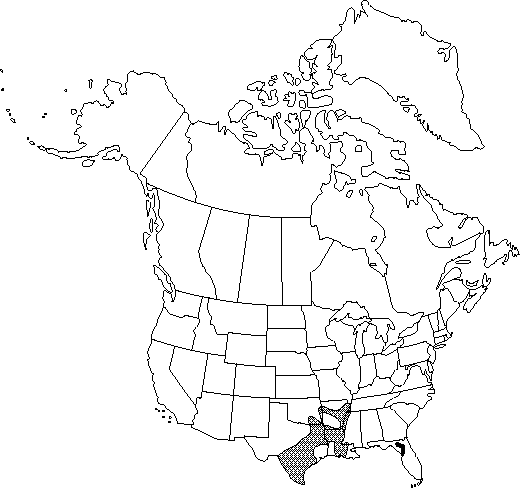Ulmus crassifolia
Trans. Amer. Philos. Soc., n.s. 5: 169. 1837.
Trees, 24-27 m; crowns rounded to narrow. Bark light brown with shallow ridges and large plates. Wood hard. Branches often with opposite corky wings; twigs reddish brown, pubescent. Buds brown, apex acute, pubescent; scales dark brown, shiny, glabrous. Leaves: petiole ca. 1.5 mm, pubescent. Leaf blade ovate to elliptic, 2.5-5 × 1.3-2 cm, base oblique or rounded to cuneate, margins crenate to doubly serrate, apex obtuse; surfaces abaxially softly pubescent, adaxially harshly pubescent. Inflorescences fascicles, 2-5-flowered, 0.5 cm; pedicel 0.75-1 cm. Flowers: calyx deeply lobed, more than 1/2 its length, lobes 6-9, hairy; stamens 5-6, anthers reddish purple; stigmas white, pubescent, exserted and spreading. Samaras green to tan, elliptic to oval, ca. 0.75-1. cm, pubescent, margins ciliate, cilia ca. 0.5 mm. Seeds somewhat thickened, not inflated. 2n = 28.
Phenology: Flowering late summer–early fall.
Habitat: Stream banks, low woods, low hillsides, roadsides, waste places, sometimes shade trees
Elevation: 0-500 m
Distribution

Ark., Fla., La., Miss., Okla., Tenn., Tex., n Mexico.
Discussion
Except for the Suwanee River valley in Florida, Ulmus crassifolia has not been found east of Webster County, Mississippi. It hybridizes with U. serotina.